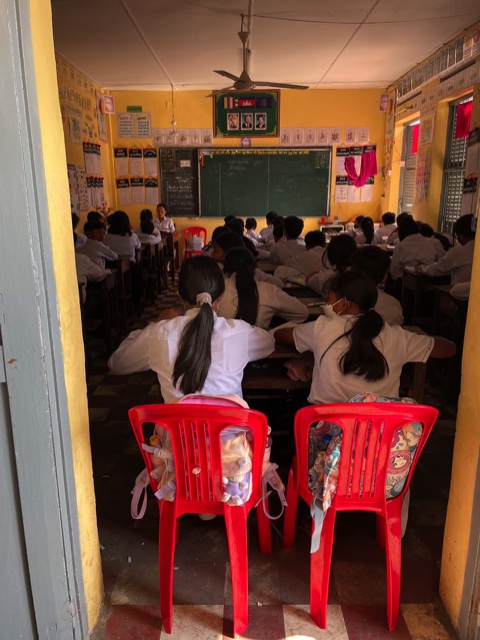After twenty years of civil war, Cambodia faced the challenge of completely rebuilding its educational system. France’s contribution was essential in this process, particularly in specific fields such as medicine – more than 1,000 Cambodian students have completed their internships in France, with an average of nearly a hundred applications currently – and engineering: The Institute of Technology of Cambodia is one of the flagships of the Cambodian university system. French assistance also enabled the implementation of training programs within universities.
This reconstruction process, which has been underway since the Paris Accords in 1991, has suffered from the outset from a vision of education as a private good and, thus, from a public investment that is one of the lowest in the region. This phenomenon is reflected in relatively low salaries in the education sector and the teaching profession’s low attractiveness despite several increases in recent years. Another consequence of these low salaries is a public service economy heavily based on a logic of extracting private rents, which reduces the public service’s efficiency and families’ trust in it. This logic is reflected, for example, in quasi-mandatory paid private afternoon classes given by public school teachers.
The country has benefited from considerable international aid since the 1990s. The total international aid received from 2013 to 2023 was one billion US Dollars, including 115.5 MUSD from the EU, 99.5 MUSD from the ADB, 75.5 MUSD from Japan, 52.6 MUSD from UNICEF, and just over 49 MUSD from USAID and the World bank (Source: Built by the author from the ODA Cambodia Database.
 |
 |
| © Murat Yildizoglu |
Unfortunately, there are relatively few visible effects of this aid, primarily intended to strengthen primary and secondary education, on the ground: poorly equipped schools with sanitary conditions whose inadequacies were glaring during the Covid epidemic; 58% of primary schools do not have access to safe drinking water. Cambodia still ranks 146th globally out of 191 countries in the Human Development Index, and less than 10% of 15-year-old students demonstrate minimal competencies in reading and mathematics in Pisa-D tests (2019).
Nevertheless, a positive shift has been observed recently, as the country aims to reach upper-middle-income levels. The last budget approved by the Council of Ministers plans to allocate 10% of public expenditure to the Ministry of Education, Youth and Sports (MOEYS). This would correspond to a budget of 990 MUSD, corresponding to a 9% increase compared to the previous year.
 |
 |
| © Murat Yildizoglu |